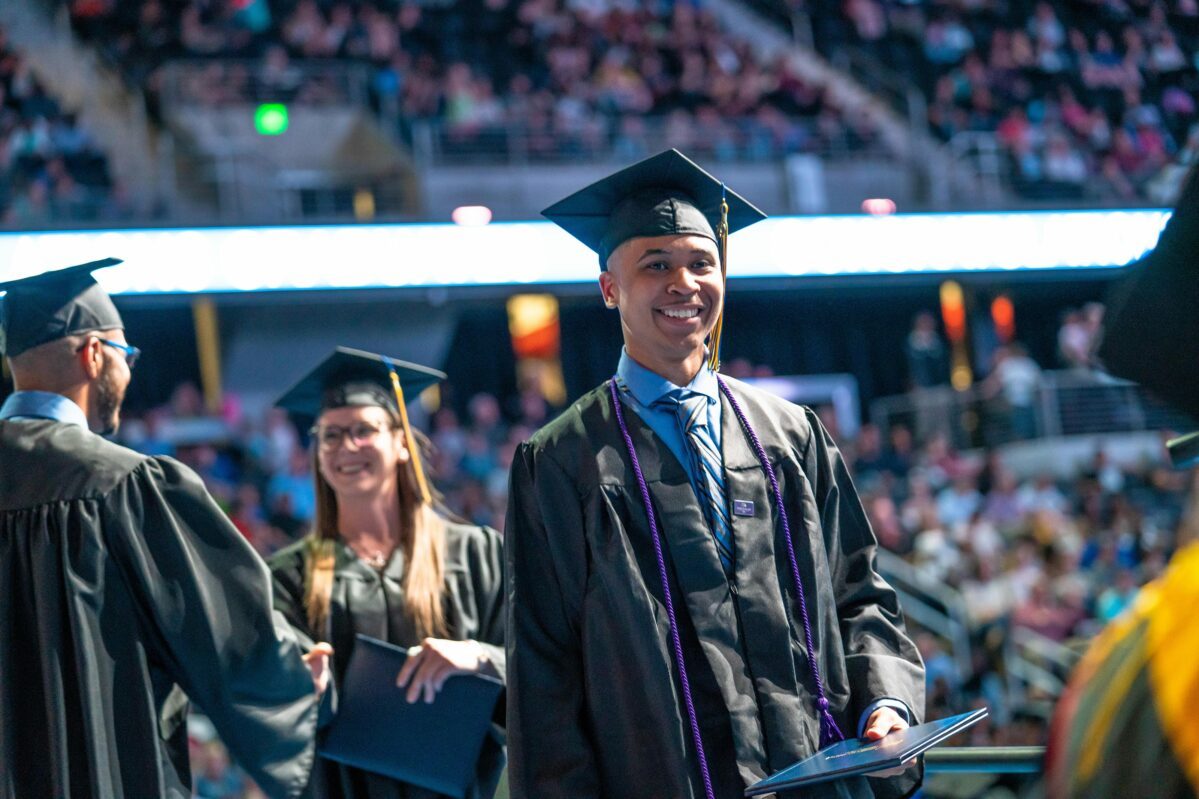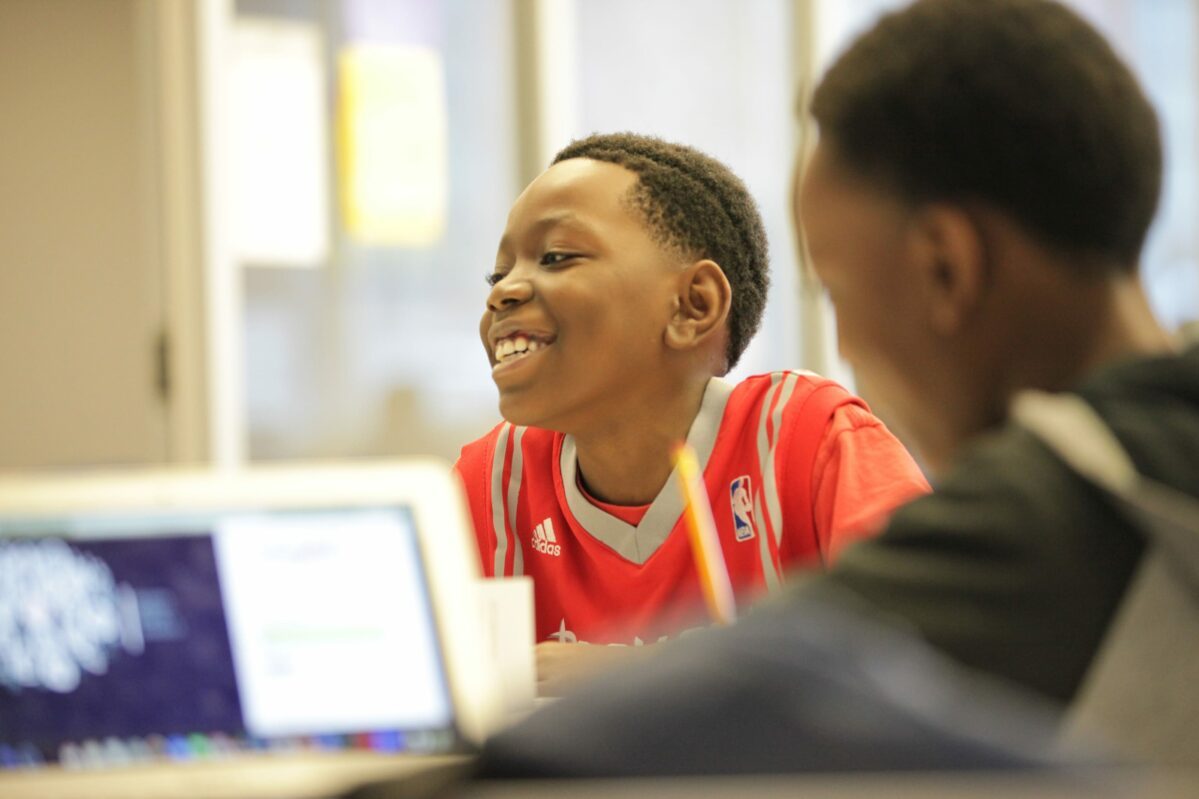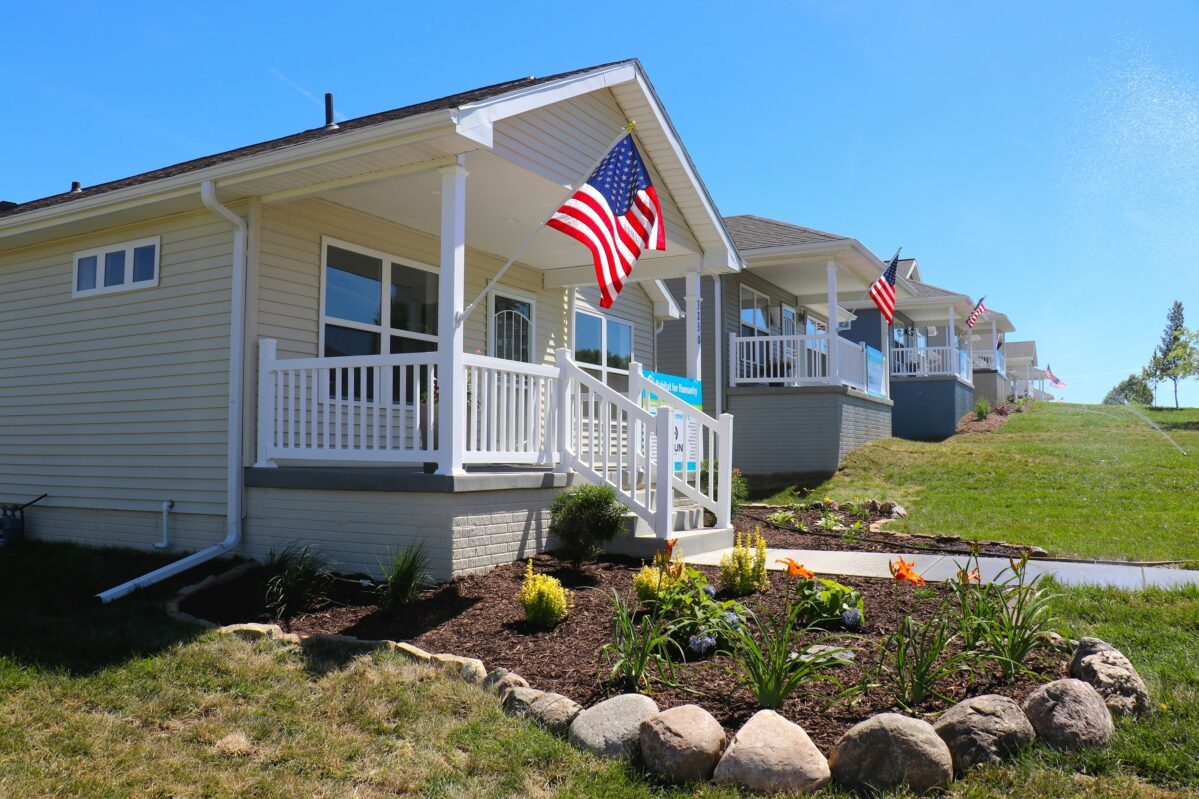WHAT WE FUND
We advance our vision to build engaged citizens and thriving communities through investments in the following impact areas:
GEOGRAPHIC PRIORITIES
The Peter Kiewit Foundation makes grants in the state of Nebraska and Western Iowa within a 100-mile radius of Omaha.
Strategic Priorities
-
College Access and Success
Goal:
Increase (2- and 4- year) college-going, persistence, and completion.Investments in:
Programs and initiatives that help students to improve readiness for, access to, and success in post-secondary education.
Post-secondary institutions’ efforts to build their own capacity to improve student success outcomes.
Programs and initiatives that strengthen the alignment between high schools, post-secondaries, and employers to create a seamless school-to-career pathway.
Two Scholarship Programs:
- “Kiewit Vocational Scholarship” Program with Nebraska Community Colleges and Iowa Western
- “Peter Kiewit Foundation Engineering Academy” at the University of Nebraska
Photo courtesy of Metropolitan Community College
-
Youth Development
Goal:
Increase the number of K-12 underserved youth participating in high-quality out-of-school programs that enhance academic and personal learning.Investments in:
- Omaha metro area nonprofit organizations that provide high-quality out-of-school programs for K-12 underserved youth (after school/summer learning, college/career readiness, mentoring, and character-building).
- Nebraska nonprofit intermediaries working to build the quality, capacity, and reach of the out-of-school time sector across the state.
Goal:
Increase the number of high-quality STEM programs and learning experiences accessed by K-12 underserved youth outside the school day.Investments in:
- Omaha metro nonprofit organizations and educational institutions that provide high quality STEM awareness, experiences, and exposure opportunities.
- Quality of place amenities that provide STEM experiences (science museums, children’s museums, libraries, etc.)
- Networks that support quality STEM experiences and connect them to educational and career pathways.
-
Economic Development and Opportunities
Goal:
Increase the number of people who live, work, and play in Downtown Omaha.Investments in:
- Civic, cultural, and recreational amenities that engage and improve the quality of life for residents in Downtown and the Urban Core.
- Efforts that take a capital project from “basic to beautiful.”
- Efforts that support walkable, bikeable communities as well as multi-modal transportation options (e.g., bikeshare programs, trail networks, bus rapid transit programs and supports, etc.)
Goal:
Stabilize and grow neighborhoods in east Omaha experiencing decline and disinvestment.Investments in:
- Catalyst projects and initiatives that revitalize the built environment.
- Beautification efforts for capital projects such as green space, streetscape amenities, transportation corridor amenities and employment center amenities.
Goal:
Increase employment, jobs, and workforce in distressed communities (aimed at developing economic independence for underserved and low- moderate income people).Investments in:
- Workforce development programs that build skills and connect individuals to employment.
-
Quality of Place Amenities
Goal:
Increase the availability of and access to high-quality civic, recreational, and cultural amenities through transformational, catalytic community-wide projects.Investments in:
- Capital projects across Nebraska and Western Iowa supporting communities building and restoring high-quality community amenities that create places people want to live, work, play, stay, and thrive.
We are no longer accepting requests for programming or operating support. Moving forward, our grants will support community amenity projects that foster community connection. We do not support or sponsor individual performances, festivals, or touring exhibits. This strategic priority does not include support for direct service projects or organizations.
-
Community Foundation Capacity
Goal:
Improve community foundations’ abilities to lead and respond to their own needs and opportunities in their community.Investments in:
- Community foundations in Greater Nebraska working to build capacity of community leaders and retain local wealth.
Grantmaking approach
Eligibility
Organization Type
The foundation awards grants to nonprofit organizations with a valid 501(c)(3) status and to units of government.
Geographic Consideration
The foundation supports efforts primarily in the Omaha metro area and across the state of Nebraska. We also make grants in Western Iowa within 100 miles of Omaha.
Project Type
We consider proposals that are closely aligned to the foundation’s Strategic Impact Areas.
We Do Not Fund
- Individuals
- For-profit businesses
- Other private foundations
- Individual K-12 schools
- Churches
- Hospitals
The foundation does not provide funding to support debt retirement, operational deficits, endowments, general fund drives/annual appeals, event sponsorship, or routine public works projects.
Matching Funds
Peter Kiewit Foundation grants are awarded on a matching funds basis. An applicant must have developed at least a portion of the matching funds needed before submitting a request.
Size and Duration of Grants
There are many factors that determine the size and duration of a grant. Considerations include, but are not limited to, the amount of the request, the nature and scope of the project, the foundation’s history with the organization, the level of community and organizational support, and past foundation grants for similar projects.
In conversations with a PKF team member, appropriate request size and duration of potential requests are discussed.
Grant Decisions
All grants are approved by the foundation’s Board of Trustees during their board meetings. When making funding decisions, the Board considers the alignment to strategic impact areas, opportunity for impact, the organization’s ability to execute and sustain the work, and the level of community support. The Board also considers the applicant’s governance, leadership, track record, capacity, and financial health.
Decisions on funding requests are made 3 times a year: March, June, and October. Requests will be brought to trustees after staff has had time to review the proposal and conduct due diligence.
Grant Terms
Grant Payout
Each grant contains specific disbursement terms and conditions that are detailed in documents the grantee must sign to activate the grant. When capital construction grants are approved, foundation funds are paid only after the construction has been completed and the facility is available for its intended use.
Reporting Requirements
Grant documents specify the reports the grantee is required to submit to the foundation and when the reports are due. Requirements are unique to each grant, but typically cover fundraising, project status, outcomes and impact.








